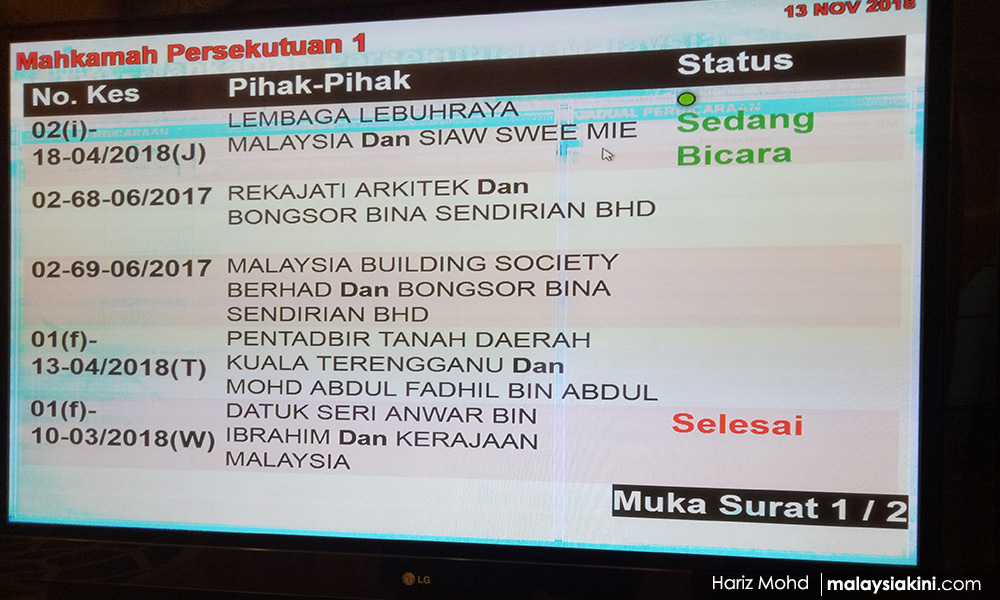
The challenge by PKR president-elect Anwar Ibrahim against the constitutionality of the National Security Council (NSC) Act 2016 will now be heard at the Kuala Lumpur High Court.
This after the Federal Court ruled today for the case to be remitted to the High Court, after Anwar's appeal was unopposed by senior federal counsel Mazlifah Ayob, who was representing the federal government.
The Federal Court had on March 14 granted leave (permission) to Anwar to challenge the constitutionality of the controversial act.
Counsel Gopal Sri Ram, who represented Anwar, told the Federal Court's five-man bench, led by Chief Justice Richard Malanjum, that the government would not be opposing his client's appeal, and thus, it should be allowed unopposed.
Malanjum reaffirmed this with Mazlifah and allowed the appeal.
The case was then set for hearing at the High Court this November 21.
Anwar had in August 2016 filed a judicial review to challenge the constitutionality of the NSC Act, a day after the law came into force under Article 66(4A) of the Federal Constitution.
He is also seeking to have a constitutional amendment inserted in 1993 declared unconstitutional, which states that if the Yang di-Pertuan Agong does not assent to a bill within 30 days, it automatically becomes law.

Anwar's case was dismissed by the Kuala Lumpur High Court on October 14, 2016, after judge Hanipah Farikullah allowed the government’s preliminary objection that the court did not have the power to strike out without permission from the Federal Court.
The High Court's decision was upheld by the Court of Appeal on Nov 6 last year after hearing an appeal filed by Anwar's lawyers.
With the Federal Court's decision today, Anwar's lawyers would be arguing in the High Court that amendments to the constitution in 1993, which enabled bills to become law without royal assent, are unconstitutional and void.
In June 2016, the federal government, then led by BN, had the NSC Bill 2015 gazetted into law without royal assent.
This was despite calls by the Conference of Rulers for the legislation to be refined.
According to the gazette published on June 7, 2016, the bill was declared as assented on Feb 18, 2016, under Clause 4(a) of Article 66 of the Federal Constitution, which states that a bill becomes law 30 days after it is presented to the Yang di-Pertuan Agong, even if the Agong does not assent. - Mkini



No comments:
Post a Comment
Note: Only a member of this blog may post a comment.